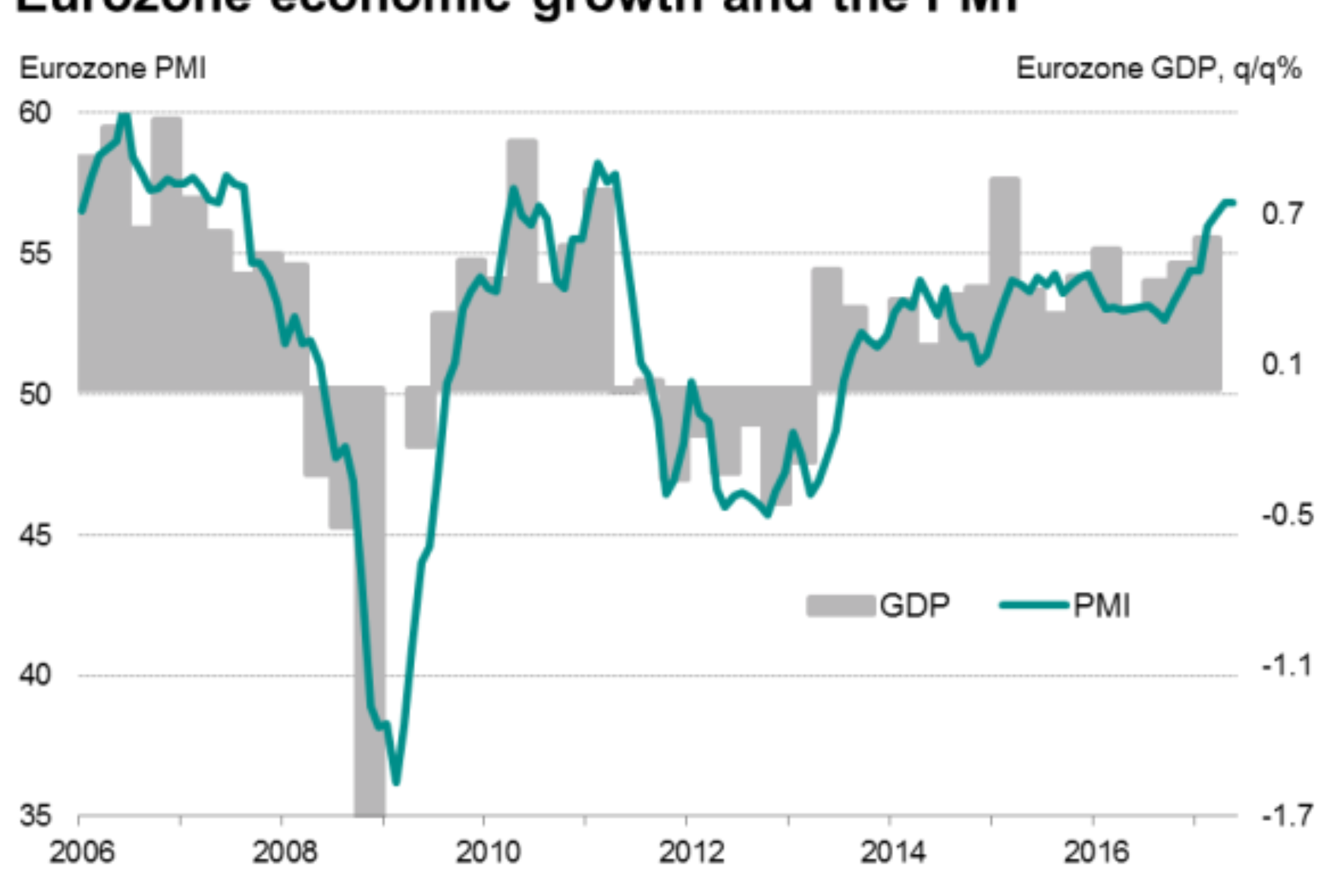In the interconnected global economy, the Eurozone’s Gross Domestic Product (GDP) growth serves as a crucial barometer, reflecting the region’s economic health and exerting significant influence on various sectors and regions worldwide, including Eurozone Dubai. This article delves into the intricate dynamics of Eurozone GDP growth, analyzing prevailing trends, and elucidating its far-reaching implications for Eurozone Dubai’s economy.
Understanding Eurozone GDP Growth
At its core, GDP growth encapsulates the rate at which the collective economic output within the Eurozone expands over a specified period. The Eurozone, comprising 19 European Union member states sharing the euro currency, embodies a diverse economic landscape shaped by myriad factors, each wielding varying degrees of influence over GDP dynamics.
Factors Influencing Eurozone GDP Growth
Delving deeper, it becomes evident that EurozoneGDP growth is not merely a product of isolated economic activity but rather a confluence of multifaceted factors. These include:
Domestic Consumption:
Consumer spending constitutes a significant driver of economic activity within the Eurozone. Factors such as employment rates, income levels, and consumer sentiment collectively shape the trajectory of domestic consumption, thereby influencing GDP growth.
Investment:
Capital expenditure by businesses on infrastructure, equipment, and innovation fuels economic expansion, contributing to GDP growth. The ebb and flow of investment sentiment, influenced by factors like market conditions and regulatory environments, further modulate growth patterns.
Government Spending:
Public expenditure on infrastructure projects, social welfare programs, and defense initiatives plays a pivotal role in stimulating economic activity. Government fiscal policies, including tax regimes and public debt management, directly impact the magnitude and direction of GDP growth.
Trade Dynamics:
As a major player in global trade, the Eurozone’s export performance significantly influences GDP growth. Fluctuations in international demand, trade agreements, and currency valuations exert profound effects on export-oriented industries, thereby shaping overall economic growth.
Monetary Policy:
The European Central Bank (ECB) wields considerable influence over economic dynamics within the Eurozone through its monetary policy decisions. Interest rates, liquidity provisions, and asset purchase programs implemented by the ECB serve to modulate borrowing costs, liquidity conditions, and inflationary pressures, thereby influencing GDP growth trajectories.
Recent Trends in Eurozone GDP Growth
Over recent years, the Eurozone’s economic landscape has been characterized by a blend of resilience and volatility. The aftermath of the global financial crisis saw the region navigating through a protracted period of tepid growth, punctuated by sporadic bouts of economic contraction. However, concerted efforts at both national and supranational levels, coupled with external stimuli such as quantitative easing measures, bolstered the Eurozone’s economic recovery.
Despite strides made in post-recession resurgence, the Eurozone confronted formidable challenges in the form of geopolitical uncertainties, trade tensions, and, most notably, the unprecedented disruptions wrought by the COVID-19 pandemic. The pandemic-induced economic shock reverberated across the Eurozone, precipitating sharp contractions in GDP and compelling policymakers to implement unprecedented fiscal stimulus measures and liquidity injections to mitigate the fallout.
Implications for Eurozone Dubai
As a pivotal hub within the global economic network, Eurozone Dubai stands uniquely positioned to be both a beneficiary and a barometer of Eurozone GDP growth dynamics. The implications of Eurozone GDP trends for Eurozone Dubai span across various domains:
Trade Relations:
Eurozone Dubai’s economic fortunes are intricately intertwined with the Eurozone’s trade dynamics. Shifts in Eurozone GDP growth patterns reverberate through bilateral trade channels, influencing the volume and composition of goods and services exchanged between Eurozone Dubai and Eurozone nations.
Investment Climate:
Eurozone GDP growth trends exert a discernible impact on investor sentiment and capital flows into Eurozone Dubai. Robust GDP expansion within the Eurozone augurs well for investor confidence, potentially catalyzing inflows of foreign direct investment (FDI) and fostering conducive conditions for business expansion and innovation.
Tourism and Hospitality:
The Eurozone’s economic performance directly influences travel patterns and tourism expenditures, thereby shaping demand for hospitality services in Eurozone Dubai. Positive GDP growth trajectories within the Eurozone augur well for Eurozone Dubai’s tourism sector, potentially translating into increased visitor arrivals and hospitality revenues.
Financial Markets:
Eurozone GDP growth trends serve as a bellwether for global financial markets, exerting influence over asset valuations, currency exchange rates, and investor risk appetite. Eurozone Dubai’s financial institutions and market participants keenly monitor these trends, adapting investment strategies and risk management frameworks in response to evolving economic dynamics.
In summation, Eurozone GDP growth stands as a linchpin of economic vitality within the Eurozone, permeating through various sectors and resonating across global economic landscapes. As Eurozone Dubai navigates the complexities of an interconnected economic milieu, a nuanced understanding of Eurozone GDP trends and their implications becomes imperative. By discerning prevailing growth patterns, anticipating future trajectories, and adeptly aligning strategies with evolving economic realities, stakeholders in Eurozone Dubai can position themselves to thrive amidst the dynamic currents of Eurozone GDP growth.




